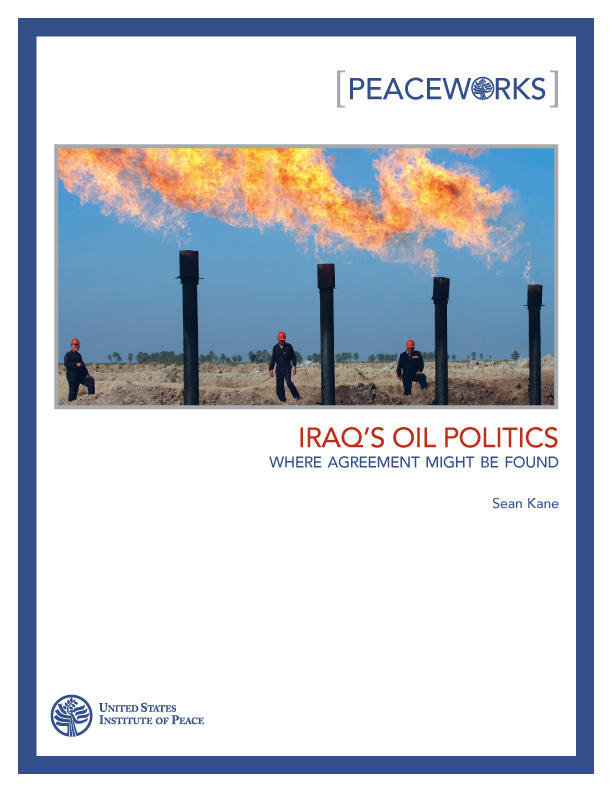Iraq's Oil Politics
A new USIP report appraises the explosive politics of Iraq’s oil wealth and opportunities to address the conundrum.

Summary
- The U.S. policy debate on Iraq is now primarily focused upon defining an appropriate troop withdrawal schedule.
- Iraq is uniquely dependent upon oil to finance its state. Struggles for control over this resource underpin the country’s myriad political fault lines. Any political strategy for Iraq therefore must start with the so far intractable question of how Iraq’s oil revenues are to be shared.
- The Bush administration clearly recognized the need to address the oil conundrum and specifically identified an oil-revenue-sharing agreement as vital to achieving a political settlement in Iraq. The efficacy of the tactical decisions it made to accomplish such an agreement is substantially open to debate.
- There was a mismatch between the legislation that the United States championed--the hydrocarbon law--and the strategic objective that it had identified, revenue sharing. The hydrocarbon law is principally concerned with oil contracting and investment procedures, an area where Iraqis are particularly far apart, and does not address the task of setting up a national revenue-sharing system.
- The U.S. approach also gave limited consideration to whether complementary constitutional amendments might be required to protect any agreement contained in oil legislation. This is pertinent because Iraq’s Constitution appears to grant oil-wealthy regions the ability to override or opt out of national laws on oil matters.
- Such tactical decisions contributed to the deep political impasse on oil legislation, which in turn contributed to Iraq’s inability to find compromises on other key political issues, including constitutional reform and disputes over Kirkuk and other disputed internal boundaries.
- U.S. political influence should be reoriented to play a supporting role in helping Iraqis come to a comprehensive agreement on how to share their oil revenues. This could entail both passing a national revenue-sharing law that lays out the details of an automatic revenue-sharing system and adopting specific constitutional amendments to provide guarantees that oil-wealthy regions will participate in such a system.
- An automatic revenue-sharing system would be of great assurance to the Kurdistan Region, which is concerned about both the ultimate acceptance of its autonomy by non- Kurds and, in turn, its dependence upon unpredictable annual budgetary grants from the national government. At the same time, constitutional guarantees would be symbolically and substantively important in addressing the trepidations held by Sunni and many Shia Arabs with regard to federalism, future Kurdish aspirations, and the unity of Iraq.
- Revenue sharing may be the only area where the desire among many Arab Iraqis for nationally led governing arrangements and the financial interests of autonomy-minded Iraqi Kurds overlap. From a broader political standpoint, the conclusion of a revenue sharing agreement could only help to unlock compromise on other key political disagreements among Iraq’s major communities, including disputes over the status of oil-rich Kirkuk province.
- It is vital to Iraq’s future stability that progress is made on key political drivers of conflict in advance of a full U.S. troop withdrawal. A comprehensive revenue-sharing agreement is a strategic entry point for pursuing such progress because of its potential for agreement and its broad political significance. Despite three years of failed oil negotiations, revenue sharing is an area of potential agreement that should be further explored.
About the Report
This report was written by the author in his personal capacity. The views expressed herein are his alone and do not represent the positions of the United Nations or any other organization. The author would like to thank Andrew Gilmour, Peter Bartu, Marc Lynch, Jason Gluck, and Kurt Volkan for their helpful comments and other assistance in preparing this report. Any errors or factual inaccuracies in the report are solely the responsibility of the author.



